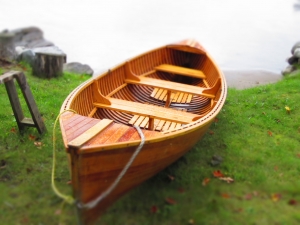It’s a dream that many people have: work hard all week, spend weekends (or weeks) at the cottage (or farm, or chalet, or hunt camp…). There are very specific considerations to be aware of, however, when you are thinking of purchasing a recreational property.
Homes outside of urban centres generally are on septic systems and wells, and often use fuel oil or propane for heating. There may be access issues – what will you do if your only way to get to your cottage is an unregistered easement over a neighbour’s property? Another issue is that ural lots can be more difficult to obtain insurance on.
If you are thinking about buying a recreational property, you will want to speak to your realtor about extra conditions in your offer to make sure that you are comfortable owning what you think you are buying, and to your lawyer about reviewing the property before your offer is firm. You will also want to be even more proactive about speaking to a mortgage broker early in the process – obtaining a mortgage on vacant land, for example, can be far more difficult than obtaining a mortgage on an existing building.
Recreational properties can be very exciting, but it is even more important to ensure that you are getting what you’re paying for.
